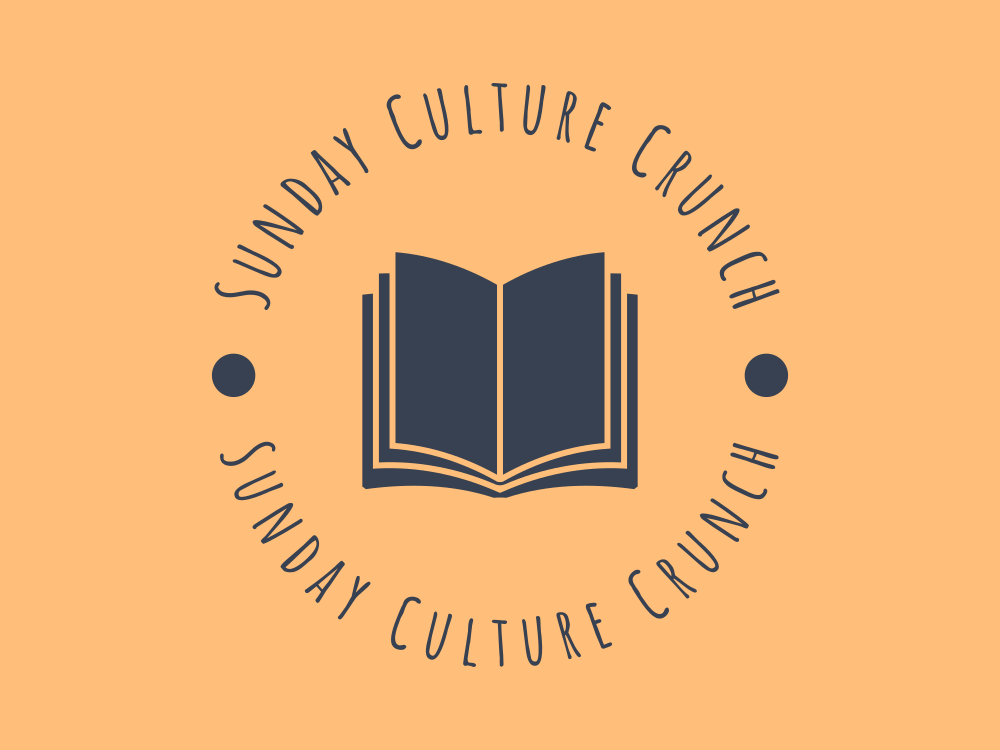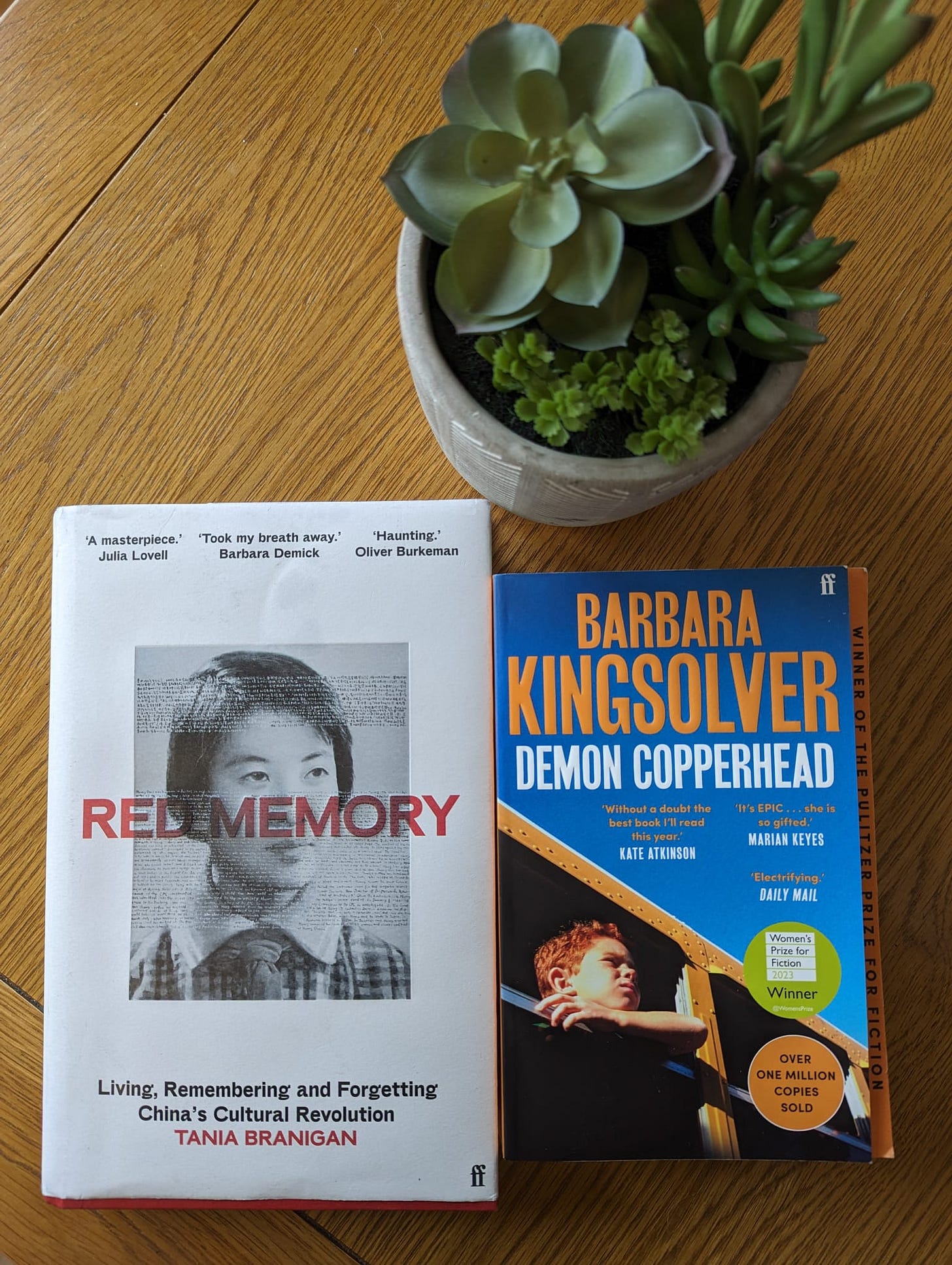Good morning all, hello to new subscribers, and welcome to the Sunday Culture Crunch — my weekend roundup of thought-provoking listening/reading, new music, upcoming events, and recommendations for general culture stuff to look out for over the next few weeks. Happy browsing, and do comment if there’s anything you’d like to see featured in the Crunch. Want more/less fiction? Non-fiction? Old recordings? Let me know!
Jeremy Eichler’s new book Time’s Echo has just been longlisted for the Baillie Gifford Prize for Non-Fiction. It’s about how particular pieces of music have shaped the way the Holocaust is remembered, focusing on works by Britten, Shostakovich, Schoenberg and Strauss. I reviewed it for the Financial Times here.
Events-wise, a reminder that I’m at Budleigh Salterton Literary Festival in Devon on the 20th September, Stroud for the Hidden Notes festival on the 24th, then I’m heading up to Scotland for the Wigtown Book Festival on the 29th (which is also available online). If you come to one please do come say hi at the book signings afterwards!
New Recordings
Luna. Organist Anna Lapwood is doing incredible things for classical music at the minute. She won the RPS Gamechanger award this year, and her new album is out this fortnight.
Anthony Burgess, Guitar Quartets. Yes that’s the Anthony Burgess of A Clockwork Orange fame. He was also a composer, and this disc includes his complete music written for the Aïghetta Guitar Quartet.
Wonderland. A cappella group The King’s Singers always sound superb, and this is a thoughtfully put-together programme on a theme of ‘Wonderland’.
George Walker: Five Sinfonias. This brings together all five of Walker’s Sinfonias, played by the National Symphony Orchestra and conducted by Gianandrea Noseda.
Bruckner, Symphony No. 7. It’s Simon Rattle conducting the London Symphony Orchestra, so you can expect this to be a good one. Plus, Bruckner. As a bonus for Wagner fans, Rattle’s Siegfried with the Symphonie-Orchester des Bayerischen Rundfunks is out this month as well.
Songs of the Night. Rowan Pierce, Julien van Mellaerts and Lucy Colquhoun come together for this collection of songs after dark.
Amazonia: Villa-Lobos & Glass. This disc comes out of a collaboration between conductor Simone Menezes and photographer Sebastiao Salgado, focused on Villa-Lobos’s Floresta do Amazonas. Menezes is a fantastic Villa-Lobos interpreter and she does wonderful things with this piece.
Esa-Pekka Salonen in Verbier. Salonen conducting Sibelius, Bartók and Robert Schumann? Ah, go on then.
Emily Howard: The Anvil and Elliptics. The BBC Singers and BBC Philharmonic are sounding on fine form here, in Howard’s work commemorating the 1819 Peterloo Massacre.
An oldie and a goodie…
Dobrinka Tabakova, String Paths. Tabakova is one of my favourite composers, and this disc of works for strings remains my go-to. If you listen to nothing else on here, please listen to the Cello Concerto, especially the second movement. It’s an extraordinary piece of music.
What I’m Reading
Barbara Kingsolver, Demon Copperhead. Kingsolver is the only author to have won the Women’s Prize for Fiction twice and this book really shows why. It’s a tour de force — deeply moving, and the writing is just stunning.
Tania Branigan, Red Memory. Told through interviews, this is a very personal history of the Cultural Revolution. Branigan’s writing style is evocative and her interviewing style unobtrusive; it’s a great combination.
‘I once seed in a book that faint heart never won fair lady, so here goes’: a nineteenth-century Yorkshire marriage proposal.
“I made myself small, folded myself up origami tight.” Poet Maggie Smith on negotiating a career with an unsupportive partner.
Corinne Fowler on building contructive dialogues around opposing views of controversial histories.
hello, i love you, won’t you pick up your phone??? Comedian Alex Dobrenko on parental relationships.
Why can’t our friendship survive your baby? Allison P. Davis on friendship and parenthood.
The Guardian recommends 33 Substacks.
Live Music
Following on from their Rite of Spring at the Proms which has received unanimous rave reviews, Aurora Orchestra are playing Anna Meredith, Caroline Shaw, Nico Muhly and Bach at Kings Place on 22nd September.
RPS Impact Award winners Multi-Story Orchestra are at Queen Elizabeth Hall on the 23rd with The Endz, a show combining classical music, rap, and spoken word.
If new music is your thing, then the Hermes Experiment are at the Purcell Room on the 24th September, playing works by composers including Meredith Monk and Elaine Mitchener.
Cellist Laura van der Heijden is a Kings Place artist in focus and always worth seeing live — she’s playing at Kings Place on 4 October.
Saxophonist Jess Gillam and the BBC Philharmonic are giving the UK premiere of Anna Clyne’s Glasslands on 5th October. Clyne and Gillam are powerhouses so don’t miss this one — it’s at Nottingham Royal Concert Hall, and tickets include access to Gillam’s pre-concert talk.
The Oxford International Song festival have a theme of music and visual arts this year. They’ve gone in some fun directions, e.g. with a day themed round fashion and song. I’ll particularly flag Tangram on the 27th October — they were shortlisted for the RPS Young Artist Awards this year and are a really brilliant collective.
And for something completely different…
Whether you’re a committed reader or an occasional book-dabbler, the New York Times Book Review Podcast is routinely fascinating. They have great book round-ups and author interviews — my favourites include Maggie O’Farrell on Hamnet, and Jonathan Eig on his Martin Luther King biography.





Thanks again for another fascinating post.
In terms of suggestions, I have one. I would be interested if you had a recommended reading list of contemporary female musicologists (I don't mean this as a genre!).
Almost all the musicology books I own are written by men and therefore find myself quoting men more often in my writing. I want to broaden my reading to include more women writers, regardless of whether gender is something they write about.
There are two reasons I think this is important: it is ethical and right which I doubt needs elaboration, and also excluding female writers distorts one's understanding of history and the present. For a professional, that means operating with a broken radar.
I felt this most strongly when reading Nalini Ghuman's excellent book Resonances of the Raj. In the book, she writes in detail about Maud MacCarthy, whom I had never heard of previously, though I now see her as a key figure in 20th-century classical music, and potentially the first real pioneer of so-called 'world music'.
I don't mean this as a way for you to do the work for me - I do attempt to do this, but I´m not an academic and don't have that knowledge of musicology, and I also spend a lot of my time chasing two young children so research is very limited. If there is knowledge at your fingertips of good contemporary (or non-contemporary) writers that might effortlessly make its way into a future newsletter, I for one would be interested!
Thanks again for all the good leads.
Delighted to see The Hermes Experiment get a mention; such a unique ensemble.